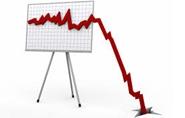Market Data

November 30, 2017
Chicago Business Barometer Retreats in November
Written by Sandy Williams
The Chicago Business Barometer retreated 2.3 points in November to 63.9, its lowest level in three months. Any number above 50, however, is an indicator of growth. The decrease followed October’s six-and-a-half year high, and economists expect the Barometer to finish the year continuing its 21 straight months of expansion.
Output was robust in November, reported MNI Indicators. New orders remained healthy, although retreating slightly from October.
Order backlogs reached a 43-year high in October driven by demand and carryover of orders following the hurricanes in the South. Softer new orders brought backlogs to a three-month low.
Lead times were longer in November and supplier deliveries accelerated to their fastest pace in 13 years. Inventories were at an eight-month high.
Employment levels increased after October’s contraction, but a tight labor market and shortage of skilled workers caused firms to turn to temporary hires to augment their work force.
Input prices remained elevated in November and prices paid were at their third highest level for the year.
“Despite November’s fall, the MNI Chicago Business Barometer remains on track to deliver the first full year of expansion in three years. Firms seem to have navigated through the worst of the bad weather conditions in recent months, though supplier deliveries rising to a 13-year high and persistent high input costs suggests the effects are yet to fully dissipate away,” said Jamie Satchi, economist at MNI Indicators.
The Chicago Business Barometer, published monthly by MNI Indicators, is a composite diffusion indicator made up of the Production, New Orders, Order Backlogs, Employment and Supplier Deliveries indicators and is designed to predict future changes in U.S. gross domestic product (GDP). An indicator reading above 50 indicates expansion compared with a month earlier, while below 50 indicates contraction. A result of 50 is neutral. The farther an indicator is above or below 50, the greater or smaller the rate of change.
Below is a graph showing the history of the Chicago Business Barometer. You will need to view the graph on our website to use its interactive features, you can do so by clicking here. If you need assistance logging into or navigating the website, please contact our office at 800-432-3475 or info@SteelMarketUpdate.com.








